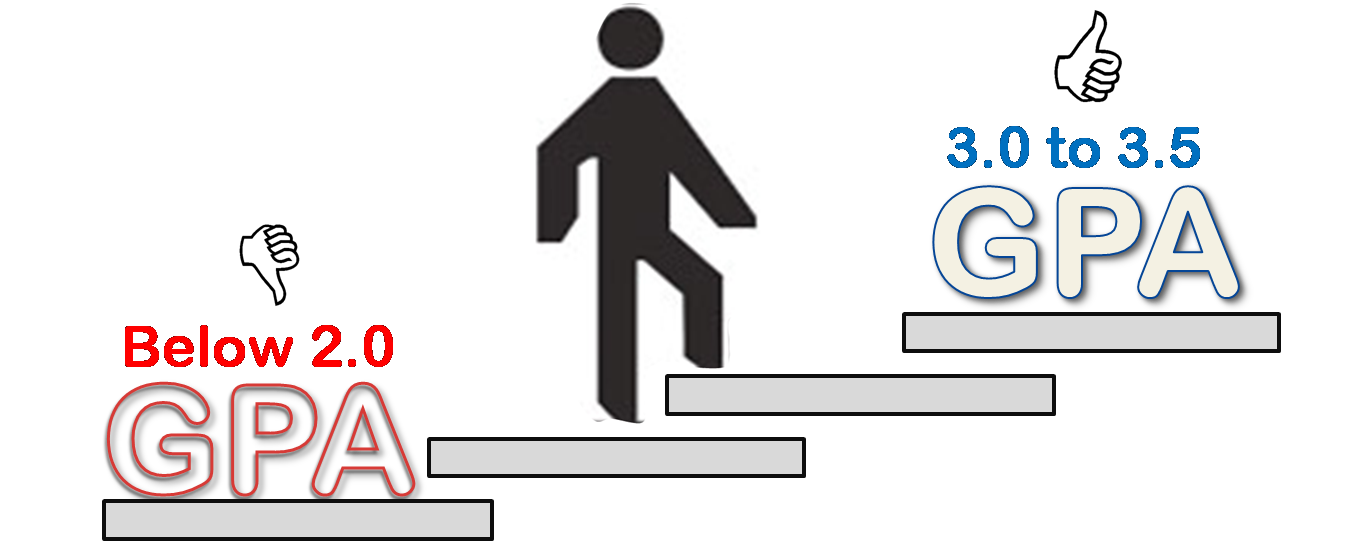7 TIPS FOR ENGINEERING STUDENTS
According to a recent survey by the Higher Education Research Institute at UCLA, one third of college freshmen plan to major in science and engineering, while about 8 percent of all first-year students intend to concentrate in engineering proper. Some of these engineering students are destined to land major leadership roles in the United States and worldwide, while others are . . . well, every field has its "lesser lights."
We were interested in finding out what current engineering students could do to put themselves on the fast track to career success. We invited visiting blogger Edward Crawley, professor of engineering and director of the Bernard M. Gordon Engineering Leadership Program at MIT, to share with us the advice he gives his own undergraduate engineering students. Here are his best tips, most of which would work for any career-aspiring college student:
#1. TRY TO MAINTAIN A 3.0 GPA OR HIGHER IN COLLEGE

Now, GPA is not everything. I put this cause not many engineering companies and graduate schools will not accept you if you have a lower GPA. Your resume' may never be seen by a human, because the computer will just filter out your resume' assuming you apply online. This isn't true for every company or school, but it will keep a lot of options open if you keep that GPA or higher. But GPA is not the most important thing. If you can't maintain that GPA just make up for with extra curricular, projects, and Engineering clubs and keep a good network. Which is tip two,
#2. NETWORK

Networking is extremely important for every one in college. Because in engineering it will help so much to get to know as many people as you can in the field you interested in. Join engineering clubs and meet people. Get to know your professors you've probably have contacts. Maybe you'll meet friends who have parents that work at engineering companies. Go to career fairs and so on. Do it whatever you can too get to know people. A common thing you'll here people say is "WHO YOU KNOW" is more important that "WHAT YOU KNOW" and this is very TRUE. So, don't be shy and go meet people over your years in college.
#3. APPLY TO SUMMER INTERNSHIPS

Honestly if you don't have big plans for summer, apply for internships even after your first year in college. It's not necessary, but it only helps. Some Engineering internships are paid. However, according to studies based on statistics the average engineering interns in the United States gets paid about $16/hr and the highest paying scale is Programming( Java, Python, C, C++). If you have 12 week internship, working full time, that's $7,200 if its rated about $15/hr. Plus it will increase your network, improve your resume, may guarantee yourself another internship next summer and could even guarantee yourself a job once you graduated if they keep hiring you.
If you don't do this , another idea is to proceed to tip #4 take summer classes.
#4. TAKE SUMMER CLASSES

Even if its just like general classes, overall what i'm trying to say, you should be productive in your summer, because you will thank yourself. You will have semesters or quarters, where you can take a lot of units. But only weeks, maybe two or three midterms and a essay do., and I hope this is stressful. It's those times that you may wish that you could have at least gotten rid of that one G.E. class. That you've don't even wanna spend your time working on where you could have more important things to do. It's still gonna be stressful but every little bit helps. And instead you got to complete it in the summer when you have free time and not much other stress.
#5. FIGURE OUT WHAT COMPANIES YOU WANT TO WORK FOR

Once you've know, or at least have an idea of where you wanna work in what projects you wanna work on.
You can try to get into relevant engineering clubs, do a senior project relevant to those companies and apply to internships at those companies or similar one's. Employers love to look at resume' and see that you've done projects or work that companies very similar to what they do.
#6. SOME COMPANIES WILL PAY FOR A MASTER'S DEGREE

This is not a guarantee, but i have to include it cause you should be aware of all ways you can save yourself money. If you're planning on a master's degree, one option is to get a Bachelor's then get a job that companies that offers this. You can work for them for a year or a few, then go back to get your master's and have it paid for. You'll get a free or cheaper education, which they may pay some of it. Have a guaranteed job when you're done, and like will come back to a pay raise. Remember, it could be hard to be back to school after you've been working and yes this is not a guarantee for everyone and not every company will do this. So don't put all your eggs in this one basket. But keep it in mind just in case, because you should've be aware of all your options. I honestly don't know all the companies will do this but I can say that most of the Large defense companies do have this as an option.
#7. TIME MANAGEMENT
Most students find that their most prominent test in changing in accordance with school life and to prevailing in the classroom is in dealing with their opportunity viably. This is particularly valid for junior college understudies who frequently work extended periods. Grown-up understudies manage the extra issues of tyke care and family and home obligations. Keep in mind, with regards to study, a practical timetable is extremely essential. A timetable which is too demanding will cause worry for you and work will pile up before you know it. So keep it straightforward and design as indicated by the time you have accessible, ensure you don't over-burden yourself. You will become a better, more productive student as a result.
CHANCE YOU MAY DO POORLY IN SOME CLASSES (OR EVEN FAIL)

If that happens, don't worry too much at first. It happens to a lot of people. Figure out what went wrong and how you gonna change your study habits. Find tutoring, go to office hours more, and so on. I know I started this blog with emphasizing GPA, but the average engineering student at most colleges get lower than the 3.0 GPA. But they get jobs just remember to pick yourself back up, keep networking, apply for internships, do extra projects besides what's required in lab and build-up that resume as much as you can. After you get that first job after college, your GPA really doesn't matter anymore in less maybe you end up going back to school.
So that's the list of important things to keep in mind. If you're going in the engineering or currently going to the curriculum. One more thing, bonus advice is to,
SAVE MONEY

One of the inexpensive you can do, is get your textbooks from university bookstore. It might be your only option at some cases. But by getting an online PDF, which yes probably will do. Some are free from the internet. Instead to save more money try to approach someone that has graduated to buy their books or borrow them. It may be more cheaper and negotiable. All will save you a ton of money.
I hope this helps not only for engineering students, but to all the students out there :)
Till Then,
Marko


hello friends, nice word and nice steem. follbaack me
Hi !!! Glad you appreciated :) @elnim Thank you !!! FOLLOWED :)